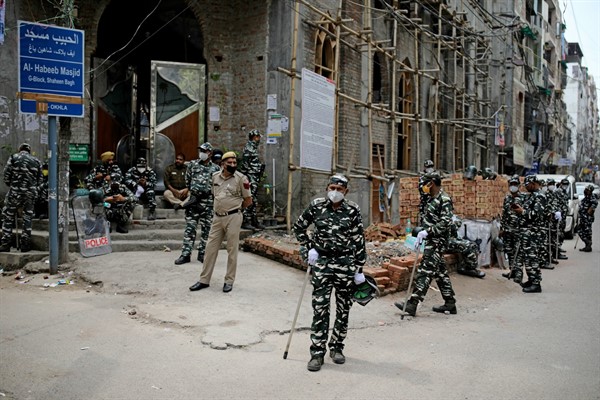Shortly after the outbreak of the novel coronavirus was first reported in the Chinese city of Wuhan last December, the Chinese Communist Party faced a PR problem. Its attempt to cover-up the public health crisis had sparked fervent criticism from journalists, foreign governments, international organizations and, more worryingly, from Chinese citizens themselves. Once the authorities in Beijing responded to the outbreak by shutting down Wuhan and its surrounding province, the party had to rebrand. A chief part of that effort was to declare that, in the battle against the coronavirus, its authoritarian government had proved that it could manage a crisis better than democracies.
The narrative has spread widely and quickly, not just because of the efficiency of China’s propaganda machine, but because it contains a kernel of truth. Democratically elected leaders in Italy, Spain, the United States, the United Kingdom and elsewhere have been rightly criticized for squandering the time they had to formulate a coherent response to the pandemic, when they could have coordinated messaging and ramped up manufacturing of vital medical equipment. These failures are costly; ultimately, a significant share of the lives lost from the coronavirus pandemic will likely have been preventable.
Yet these are not irredeemable errors, and they do not foretell the failure of democratic systems, as China’s propaganda would have it. In his book, “The Confidence Trap,” David Runciman, a political scientist at Cambridge University, posits that citizens of democracies are hypersensitive to any perceived threat that could endanger their government’s prospects for survival. As such, they tend to see catastrophe looming behind every corner. “The problem for such democracies is not that they can’t hear the whispers of their own mortality,” Runciman writes. “It’s that they hear them so often they can’t be sure when to take them seriously.”

